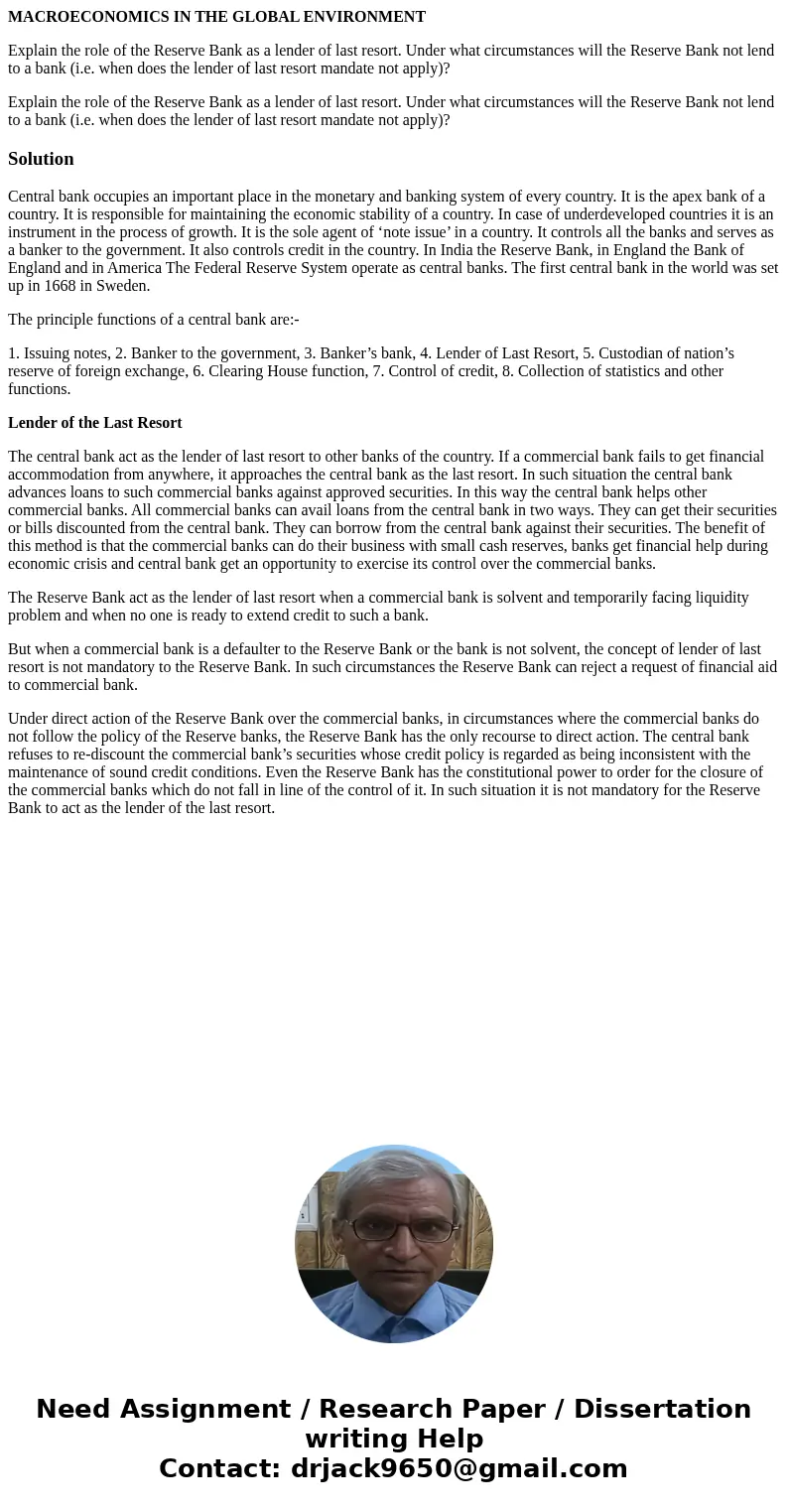MACROECONOMICS IN THE GLOBAL ENVIRONMENT Explain the role of
MACROECONOMICS IN THE GLOBAL ENVIRONMENT
Explain the role of the Reserve Bank as a lender of last resort. Under what circumstances will the Reserve Bank not lend to a bank (i.e. when does the lender of last resort mandate not apply)?
Explain the role of the Reserve Bank as a lender of last resort. Under what circumstances will the Reserve Bank not lend to a bank (i.e. when does the lender of last resort mandate not apply)?Solution
Central bank occupies an important place in the monetary and banking system of every country. It is the apex bank of a country. It is responsible for maintaining the economic stability of a country. In case of underdeveloped countries it is an instrument in the process of growth. It is the sole agent of ‘note issue’ in a country. It controls all the banks and serves as a banker to the government. It also controls credit in the country. In India the Reserve Bank, in England the Bank of England and in America The Federal Reserve System operate as central banks. The first central bank in the world was set up in 1668 in Sweden.
The principle functions of a central bank are:-
1. Issuing notes, 2. Banker to the government, 3. Banker’s bank, 4. Lender of Last Resort, 5. Custodian of nation’s reserve of foreign exchange, 6. Clearing House function, 7. Control of credit, 8. Collection of statistics and other functions.
Lender of the Last Resort
The central bank act as the lender of last resort to other banks of the country. If a commercial bank fails to get financial accommodation from anywhere, it approaches the central bank as the last resort. In such situation the central bank advances loans to such commercial banks against approved securities. In this way the central bank helps other commercial banks. All commercial banks can avail loans from the central bank in two ways. They can get their securities or bills discounted from the central bank. They can borrow from the central bank against their securities. The benefit of this method is that the commercial banks can do their business with small cash reserves, banks get financial help during economic crisis and central bank get an opportunity to exercise its control over the commercial banks.
The Reserve Bank act as the lender of last resort when a commercial bank is solvent and temporarily facing liquidity problem and when no one is ready to extend credit to such a bank.
But when a commercial bank is a defaulter to the Reserve Bank or the bank is not solvent, the concept of lender of last resort is not mandatory to the Reserve Bank. In such circumstances the Reserve Bank can reject a request of financial aid to commercial bank.
Under direct action of the Reserve Bank over the commercial banks, in circumstances where the commercial banks do not follow the policy of the Reserve banks, the Reserve Bank has the only recourse to direct action. The central bank refuses to re-discount the commercial bank’s securities whose credit policy is regarded as being inconsistent with the maintenance of sound credit conditions. Even the Reserve Bank has the constitutional power to order for the closure of the commercial banks which do not fall in line of the control of it. In such situation it is not mandatory for the Reserve Bank to act as the lender of the last resort.

 Homework Sourse
Homework Sourse